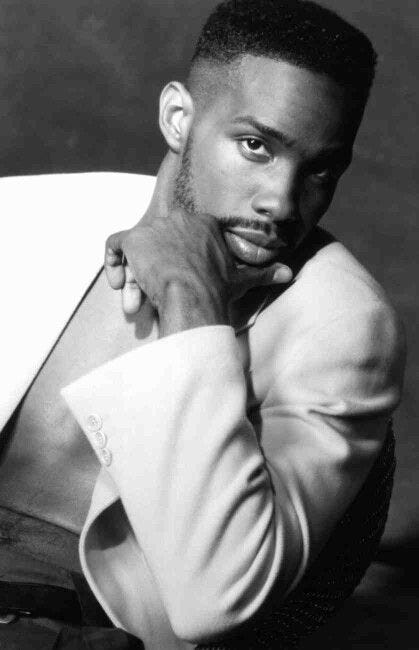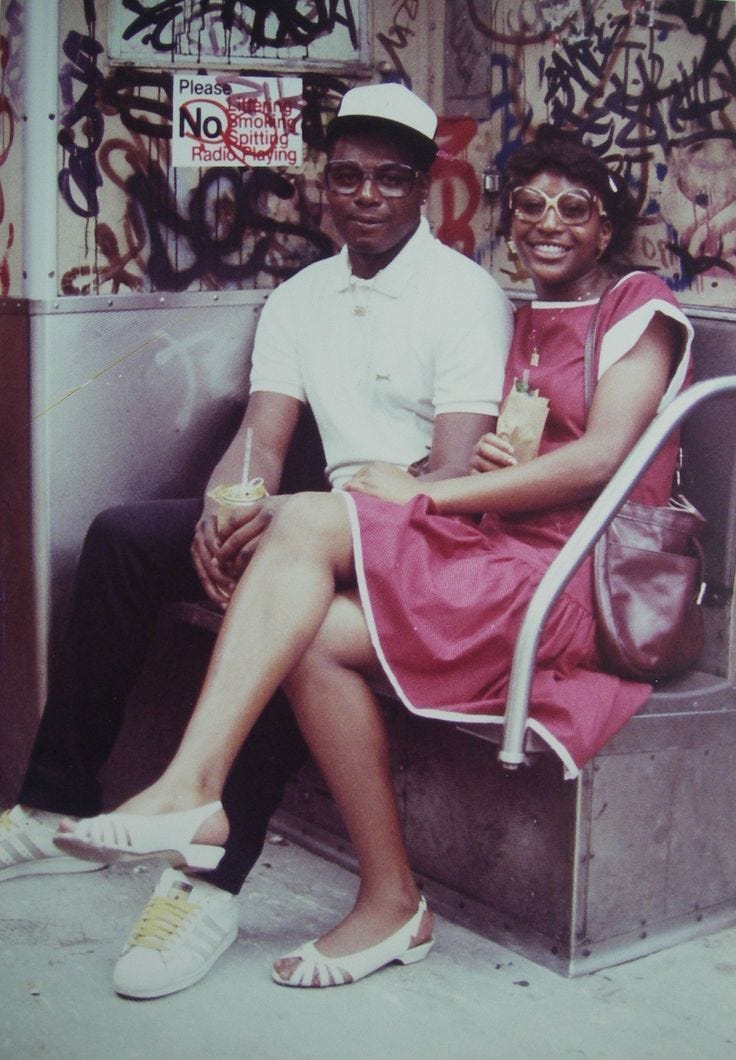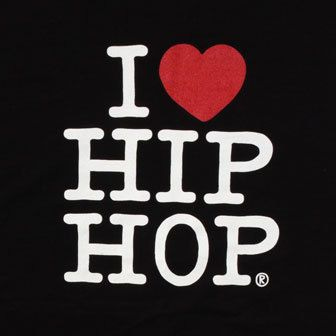Love & Hip Hop: The Reality, Not the TV Show
In this final piece on Hip Hop as we celebrate 50 years of the culture, we are exploring what Hip Hop has taught us about love.
At first analysis, it would seem that Hip Hop hasn’t taught us anything about love, instead it could be argued that perhaps the culture has, in some ways, destroyed the most beautiful notations of love. Without denying this as a definite point, Hip Hop has inspired an indeterminate number of love connections over the course of its five decades of recognition. Love is a complex phenomenon and the majority of Black music has explored nearly every angle of love, even venturing into territories that white mainstream music wouldn’t dare. Hip Hop, in this respect, isn’t any different and while a lot of Hip Hop songs are based on materialism and perhaps some form of debauchery because of its urban origins and corporate shenanigans, the culture actually respects love and the sanctity of relationships. You just have to listen closely.
What is a Hip Hop Love Song?
LL Cool J’s classic, I Need Love, was released in 1987, showing very early on that Hip Hop was capable of expressing loving sentiments. The song is vulnerable and endearing, informing the world that Black men were allowed to express themselves in such a way, even if it’s through a medium that was born in the clubs and the streets. With the intention of capitalizing on the success of I Need Love, in 1989, LL did a follow up love song titled, ‘One Shot at Love’ which didn’t garner the same popularity as the previous song. But both songs stand as representation in the Hip Hop world as anthems dedicated to love and revealed a more emo-drenched side of a Black man who has been instrumental in cultivating the dynamics of Hip Hop culture. LL has continued to express that side of himself with an impressive collection of songs that explore the range of love. It must also be noted that the man also known as James Todd has been married for nearly thirty years and has fathered four children.
A Hip Hop love song could be defined as a lyrical montage of feelings and thoughts set over bass-riddled tracks and percussion (and most likely Soul/R&B samples), but that’s not an exclusive definition. To quote Dre from Brown Sugar when making a toast at Sid’s New Year’s Eve party, ‘You are like the perfect verse over a tight beat’. Hip Hop love songs can sometimes have a flair for the dramatic but can also speak brazenly about all of the situations and circumstances of love. Using these criteria, there are several songs that could be classified as love songs as far as Hip Hop is concerned. There’s Jada Kiss’ ‘U Make Me Wanna’ and ‘I Know What You Want’ by Busta Rhymes featuring the Flipmode Squad. Both songs highlighted a wispy-voiced Mariah Carey, who has a stack of credits for being a feature on Hip Hop joints. Of course, that’s a qualifier as well. If the song has a R&B hook singing Somebody, then it could be categorized as a Hip Hop love song. It’s important to make this distinction so that a fair assessment of the lyrical content can be reviewed for loving accuracy.


Between Heavy D and Father MC, there could be a compilation album of Hip Hop love songs by them alone. Heavy D’s list of most notable hits were essentially love songs such as ‘Somebody for Me’, ‘Is it Good to You?’, ‘Got Me Waiting’, ‘Keep It Coming’, and ‘Now That We Found Love’. As for Father MC, his discography includes ‘I’ll Do For You’, ‘Treat ‘Em Like They Want To Be Treated’, and ‘Close to You’ which are the most well-known.
Method Man’s ‘All I Need’ fits the bill as a Hip Hop love song even though it’s set to a track that sounds menacing but then that’s just part of the Wu-Tang code. With the help of Mary J’s soulful inflections covering the chorus of the Marvin & Tammy classic, Meth spins verses that showcases his understanding of love and how his Shorty is showing him that. In turn, he pledges his love as well. That’s not the only love song to his credit. Meth also dropped ‘Break Ups to Make Ups’ from the Tical 2000 album, not to mention the verses he’s left on various R&B songs. Hip Hop love songs aren’t always peachy. There are the same themes of misbehaving lovers, broken hearts, and bitterness that can be found as well.
Of course, women have made contributions to the Hip Hop love experience. Sweet Tee’s ‘Why Did It Have to Be Me?’ was released in 1988 along with MC Lyte’s ‘I Cram to Understand U’. Both songs can be found on these women’s debut albums and were about heartbreak while Lyte’s ‘Georgie Porgie’, released in 1991, was a love song as well as a cautionary tale about drunk driving. Missy Elliott has some joints that meet the criteria of a Hip Hop love song, especially when it comes to sexual love. Joints like ‘Meltdown’ and ‘Pussycat’ are definitely worthy of mention when it comes to women exploring their erotic feelings for their lovers in song form. Lauryn Hill’s ‘X-Factor’, and ‘That Thing’ are bonafied Hip Hop love songs that delve into the complications of a lover coming & going and the latter is a dope musical advice column warning us to protect our hearts out here. The Queen of Hip Hop Soul, Mary J. Blige, receives a well-deserved honorable mention here even though she is primarily a singer. Mary has lent her vocals on several Hip Hop songs but she is also capable of occasionally flexing a rhyme or two under her alter ego, Brook Lynn. Other joints that passes as Hip Hop love songs are ‘Not Today’ ‘I Can Love You’, and ‘Looking For Someone to Love Me’.
Hip Hop’s Love Lesson
“Unconditional love. Talking bout the stuff that don’t wear off, it don’t fade. It’ll last for all these crazy days, these crazy nights. Whether you wrong or you right, I’ma still love you, still feel you, still there for you. No matter what, you will always be in my heart with unconditional love.” — Tupac Shakur
Whether it gets credit for this or not, Hip Hop culture has been a tremendous factor in motivating relationships to form between two people who are already in love with Hip Hop itself. Intimate evenings have been spent, head nodding and connecting to the meanings found within the lyrics of a couple’s favorite jams. Deeper still, Hip Hop has taught an entire generation how to love according to their own terms; to break free from Baby Boomer perceptions and teachings about love while embracing its’ power.
Hip Hop gave us permission to keep it real with ourselves and others, when it came to love in all of its expressions; sexually, materialistically, superficially, etc. While far, far from perfect, the culture helped us define loyalty, compassion, respect, reciprocity, frustration, pain, grief, abandonment, neglect and all of the conditions that come with being either loved sincerely or insincerely. In its’ own loving way, Hip Hop forced an acknowledgement of the inconsistencies and contradictions within a dominant culture based in racism, sexism, and capitalism. Hip Hop meddled with social norms within the Black community that are largely rooted in trauma and poverty which negatively impacts the development of healthy bonds with others. Whether in the riotous political stance of Public Enemy’s ‘Fight the Power’ or the cautionary storytelling of KRS One’s ‘Love’s Gonna Getcha’, the undercurrent of each joint is love. You see, that’s what love does; it moves in truth and justice. It’s also messy at times and Hip Hop ain’t never been scared of that.
As a generation, we didn’t lose sight of love because of Hip Hop. On the contrary, once the allure of partying and bullshitting wore off, we knew we wanted to wake up next to someone who understood us on a cultural and generational level; after all, the best connections are rooted in shared interests and complementary identities. Many of us found that kind of love and it’s still going strong today. Some of us are still looking and perhaps Hip Hop, despite its loveless nature now, can still be a beacon of hope for those of us who remember and lived during its’ finest days of glory.
“Whenever I got lonely or needed some advice, he gave me his shoulder. His words were very nice. But that is all behind me, cause now there is no other. My love is his and his is mine. My friend became the love of my life.” — Erykah Badu
This concludes LLW’s four part series on Hip Hop but doesn’t conclude additional essays dedicated to Hip Hop during the lifespan of this publication. All four of these essays are incomplete. There is more to be said about this culture but there are other pieces ready for their time in the sun. So, from here, I move on…for now. I hope you have enjoyed the series and LLW so far.
I also want to thank each and every one of you for your support! LLW has over 100 subscribers now and still growing! Stay with me. There is so much more to come!






Another great article!! I’ve argued the merit of hip-hop love songs with friends over the years. I think they’re necessary.